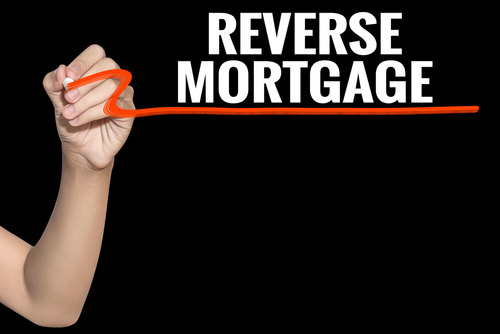If you have a paid off mortgage and you’re over the age of 62, you might be a candidate for a reverse mortgage. A reverse mortgage is a way to get cash without selling your home or applying for a cash-out refinance. You can borrow from your equity, and you don’t have to repay funds until you die or sell the property.
A reverse mortgage is similar to a home equity loan. But unlike a home equity loan, a reverse mortgage doesn’t require prepayment of principal or interest, although you are responsible for homeowner’s insurance and taxes. And since a reverse mortgage is a government product, you’re protected if your home’s value declines. If your loan amount is more than the value of the house at repayment, the government pays the difference.
As a retiree on a fixed income, a reverse mortgage provides cash when you don’t have other options. Here are four benefits of getting a reverse mortgage.
1. Supplement your income
In all likelihood, your income will decrease after retiring. Even if you receive distributions from a retirement account (401(k) or IRA) and income from Social Security benefits, the amount you receive monthly may not be enough to support your current expenses. Rather than downsize to a cheaper home, get a reverse mortgage and use funds to supplement your income. The lump sum you receive can bridge gaps in your budget and provide extra cash to keep your head above water.
2. Home improvements
Homes require ongoing maintenance and repairs. But after retiring, you may lack disposable income to keep up with home maintenance. The good thing about a reverse mortgage is that funds you receive can go toward improving your property. This can include getting a new roof, new siding, updating your kitchen and bathrooms, and taking care of other repairs. If you can manage and easily afford home repairs and maintenance, it’ll be easier to keep the home. And depending on the type of updates you make to the property, using a reverse mortgage for home improvements can raise your property’s value.
3. You never lose ownership of the property
Although you’re borrowing money from your home’s equity with a reverse mortgage, the lender does not take the deed to your property, so you’ll maintain ownership of the home. You can continue to live in the home for as long as you like, and you’re never required to make a mortgage payment or repay the reverse mortgage. If you sell the home, you’ll pay back the loan using proceeds from the sale. If you die, your estate repays the loan. Your heirs can use cash from a life insurance policy, or they can sell the home and pay off the loan.
4. Pay off other debts
If you have credit card debt, an auto loan or other types of debts, a reverse mortgage can simplify your finances and pay off these balances. Using a reverse mortgage to get rid of debt can reduce your monthly expenses and improve cash flow.








